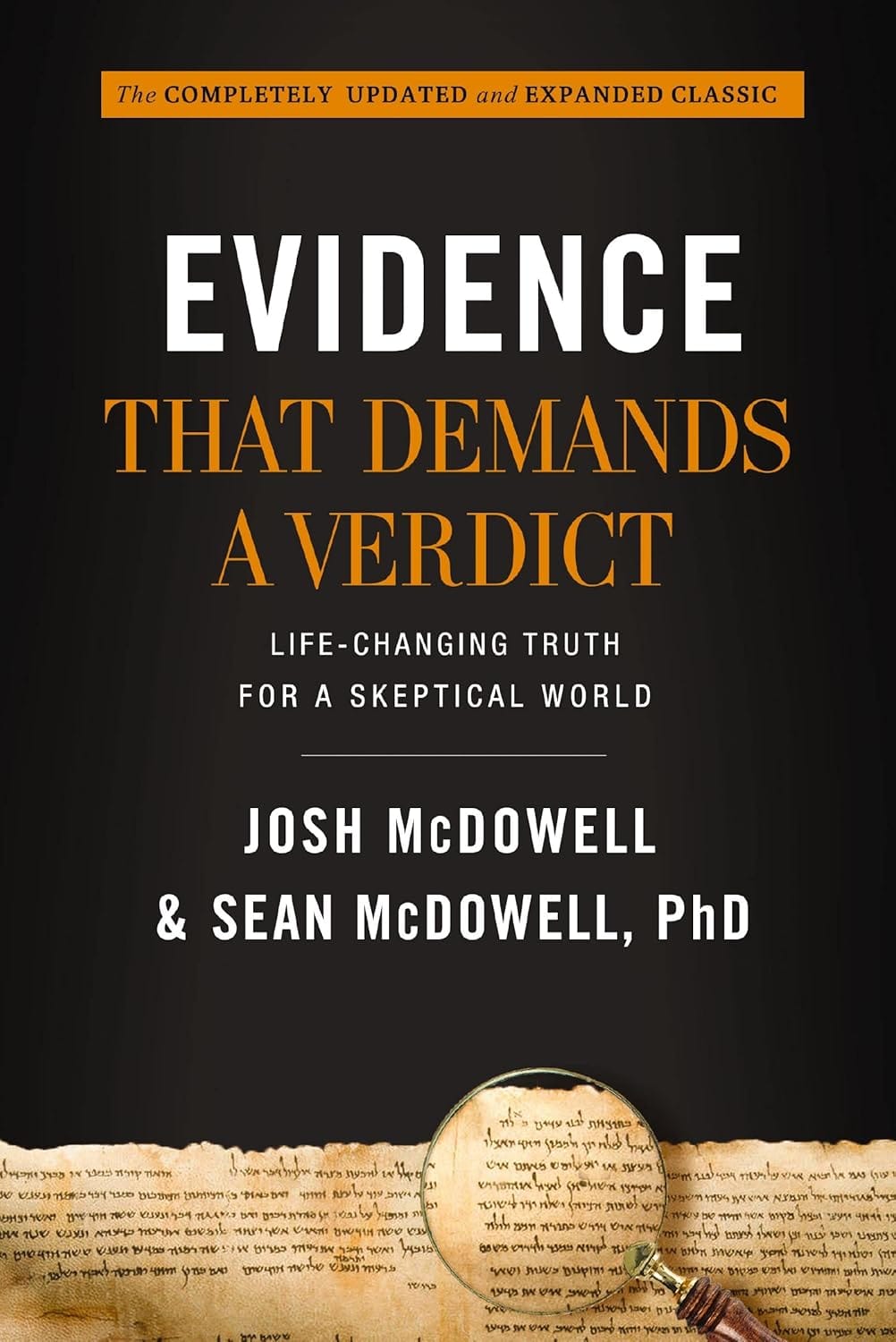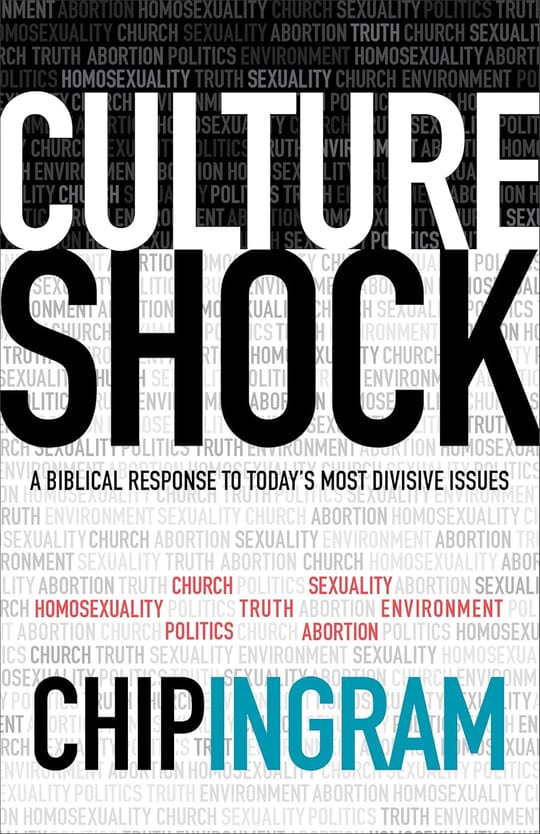Book: Evidence That Demands A Verdict
Author: Josh and Sean McDowell
Amazon Bio:
Everything you need to effectively defend the truths of the Bible and the beliefs of the Christian faith.
The truth of the Bible doesn't change, but its critics do. Now with his son, Sean McDowell, speaker and author Josh McDowell has updated and expanded the modern apologetics classic for a new generation. Evidence That Demands a Verdict provides an expansive defense of Christianity's core truths, rebuttals to some recent and popular forms of skepticism, and insightful responses to the Bible's most difficult and misused passages. It invites readers to bring their doubts and doesn't shy away from the tough questions.
Topics and questions are covered in four main parts:
- Evidence for the Bible
- Evidence for Jesus
- Evidence for the Old Testament
- Evidence for Truth
Also included, you'll find:
- An introduction about the biblical mandate to defend one's faith and why our faith is built on facts.
- A prologue describing why we live in a theistic universe.
- A closing response to the specific challenges of atheist New Testament scholar Bart Ehrman.
- Two reflections: "How to Know God Personally" and "He Changed My Life."
Serving as a go-to reference for even the toughest questions, Evidence that Demands a Verdict continues to encourage and strengthen millions by providing Christians the answers they need to defend their faith against the harshest critics and skeptics.
"Here's a treasure trove of apologetic gems! This is an indispensable book that all Christians should keep within reach." —Lee Strobel, bestselling author of The Case for Christ
As a pastor, I am often asked how we can trust the Bible and whether faith can stand up to intellectual scrutiny. Josh McDowell’s Evidence That Demands a Verdict, co-written with his son Sean McDowell, is a book I frequently recommend. This classic apologetics work provides a robust defense of Christianity, equipping believers to address tough questions about their faith. Below, I’ll share a summary of the book, my top takeaways, and practical action steps for readers.
Short Summary
Originally published in 1972 and updated over the years, Evidence That Demands a Verdict tackles the reliability of the Christian faith by presenting well-researched historical, textual, and archaeological evidence. The book is structured into four major parts:
1. The Case for the Bible’s Reliability
This section examines manuscript evidence, textual criticism, and fulfilled prophecy to argue that the Bible is trustworthy and unique among ancient texts.
2. The Evidence for Jesus
McDowell provides evidence for the deity of Christ, His resurrection, and the reliability of the Gospel accounts, addressing skeptics’ challenges with scholarly research and logic.
3. The Case for Truth
The authors argue that objective truth exists and that Christianity offers coherent answers to life’s ultimate questions.
4. Responses to Modern Challenges
The updated version includes chapters addressing moral relativism, postmodernism, and challenges from recent cultural shifts, ensuring its relevance for today’s readers.
The book blends theological insight with rigorous scholarship, making it a valuable resource for anyone seeking to deepen their faith or engage with skeptics.
Top Takeaways
1. Faith Has Intellectual Roots
Christianity is not a blind leap of faith but a reasoned trust in historical realities. McDowell’s research underscores that the resurrection of Jesus, the reliability of Scripture, and the existence of objective truth have strong evidentiary support.
2. The Bible Stands Up to Scrutiny
The manuscript evidence alone—over 5,000 Greek New Testament manuscripts—puts the Bible in a class of its own compared to other ancient texts. This is vital for Christians who may doubt the Bible’s authenticity.
3. Apologetics is a Tool for Evangelism
The book equips believers to answer questions with clarity and confidence, transforming apologetics into a practical tool for sharing the gospel.
4. Truth is Exclusive
In an age of moral relativism, McDowell’s defense of objective truth reminds us that Christianity claims exclusivity not out of arrogance but because truth by nature excludes falsehood.
Next Steps
1. Read the Book with Intentionality
Approach Evidence That Demands a Verdict as both a devotional and an academic exercise. Take notes, underline key points, and reflect on how the material applies to your life and ministry.
2. Use It as a Discipleship Resource
Consider hosting a small group study or Sunday school series based on the book. Its content is well-suited for discussions on faith and reason.
3. Practice What You Learn
Look for opportunities to engage with others about the evidence for Christianity. Whether it’s a conversation with a skeptic or a fellow believer in need of encouragement, apply what you’ve learned to real-life situations.
4. Dive Deeper into Apologetics
Let this book be a gateway to exploring other apologetics resources. Consider reading works by authors like C.S. Lewis, William Lane Craig, or Lee Strobel to broaden your understanding.
Evidence That Demands a Verdict is more than just a book—it’s a call to action for Christians to stand firm in their faith and share it confidently with the world. Josh and Sean McDowell’s commitment to truth reminds us that our faith is not only spiritually transformative but intellectually satisfying.
If you’re seeking to strengthen your own convictions or help others discover the truth of Christianity, this book is a must-read. Let it challenge and equip you as you walk boldly in your faith.
Have you read Evidence That Demands a Verdict? How has it impacted your faith? Let’s continue the conversation below.









